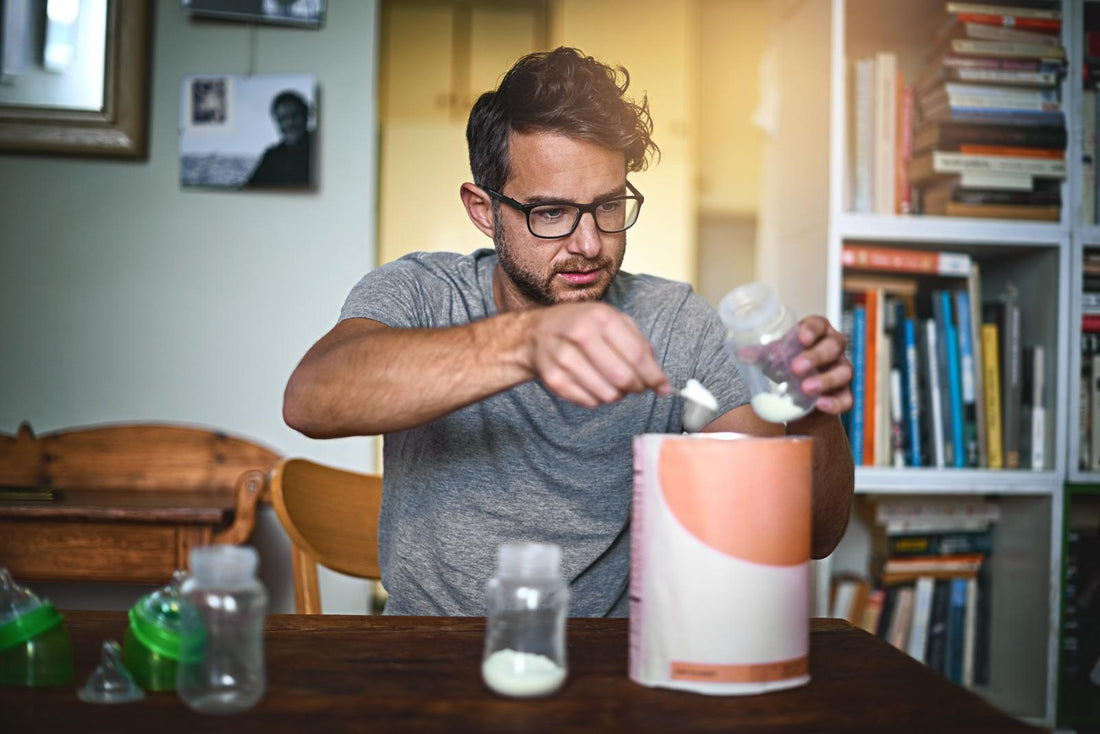Whether you’re a new parent or an experienced one, feeding your baby formula can be overwhelming. It's essential to make sure that you are using the correct measurements when preparing a formula for your baby. In this guide, we will discuss how much is a scoop of formula and why it is so important to measure accurately.
Why Accurate Measurement Matters
Accuracy is key when it comes to measuring out a formula for your baby. Too little formula can lead to dehydration and too much can cause gastrointestinal discomfort.
Additionally, providing too little nutrition can impair growth and development, while giving too much can lead to obesity and other health complications later in life. Therefore, it is essential to make sure that you are providing the right amount of formula for your baby at each feeding.
Amount Of Formula Needed Per Feeding
The formula your baby needs depends on their age, weight, and activity level. Most babies need between two and four ounces per feeding for the first few weeks, but this amount increases with age. By six months old, most babies are eating around five to six ounces per feed.
Babies will often eat more or less than the recommended amounts depending on their individual needs. It's always best to consult your pediatrician about the appropriate amount of formula for your baby.
Read More: Why Do Babies Sleep With Their Arms Up?

Cost Of Formula Per Scoop
The cost of a scoop of formula will vary depending on the brand and type you buy. Generally speaking, powdered formulas will be cheaper than ready-to-feed formulas because they require more prep work from parents.
A single scoop usually contains about three tablespoons (15mL) or 20 calories worth of powder, so one canister should last quite a while even if you're using multiple scoops per day.
For example, a 32oz canister of Similac Advanced Infant Formula Powder typically costs around $34 USD and each scoop contains around 20 calories worth of powder. That means that each scoop would cost approximately $0.17 USD based on this particular brand and size canister.
How Much Is A Scoop Of Formula?
The general rule of thumb is that a single scoop of powdered formula should equal about 4-5 grams—which is equivalent to about 1 teaspoon. However, different formulas have different scoop sizes, so always double-check the label on the container to see what size scoop yours requires (it should be listed on the package).
Some formula scoops may look bigger or smaller than others, but they should all weigh roughly 4-5 grams when filled with powdered formula. It's also important to note that most formulas come with a pre-measured scoop that fits perfectly inside the container. Do not use any other type of measuring spoon or measuring device unless the package specifically states otherwise.
Additionally, if you are using liquid concentration or ready-to-feed formula, make sure you follow the manufacturer’s instructions exactly as they are written on the package. These types of formulas usually require either no additional water or very specific amounts of water in order for them to provide an adequate amount of nutrition for your baby.
Read More: How To Get Toddler To Tell You When They Need To Potty?

Why Measure Baby Formula?
To learn how many scoops of formula your baby needs per day, you should always consult with your pediatrician. They will be able to provide you with the most accurate information about how much formula is appropriate for your child based on their age and weight.
Additionally, it’s important to use the correct measurements when making a formula for your baby in order to ensure that they are getting the proper nutrition and hydration.
How many ounces of the formula is also dependent on age and weight. It’s important to always follow your pediatrician’s instructions when it comes to how much formula you should be giving your baby at each feeding.
Potential Problems
Using the wrong measurements when preparing a formula for your baby can cause a variety of problems. Too little formula can lead to dehydration and nutritional deficiencies, while too much formula could potentially cause gastrointestinal discomfort or constipation.
Incorrect measurements can lead to imbalances in nutrition and hydration, which can be detrimental to the health of your child. It’s important to always use the correct scoop size for each type of formula you are using and follow the manufacturer's instructions exactly. formula container labels should also always be consulted to ensure the correct measurements are being used.
Furthermore, always talk to your pediatrician about how much formula you should be giving your baby at each feeding. They will be able to provide the most accurate advice and ensure that your child is getting everything they need for healthy growth and development. You can prevent potential problems by understanding how much a scoop of formula is and doing your best to measure accurately.
Read More: Can Babies Drink Cold Formula?
Does Right Scoop Effects The Sleep Of Baby?
Yes, using the right scoop of formula can have a direct effect on your baby's sleep. If your baby is drinking too little or too much formula it can lead to them not feeling full when they should be and may cause them to wake up frequently throughout the night.
Furthermore, if you are using too much formula or not measuring your missing scoop correctly, it can lead to constipation and other digestive issues. This can cause discomfort during the night and make it difficult for your baby to get little or no sleep.

Conclusion
Knowing how important a single scoop of the formula is, and why accurate measurements are so important, can help you provide the right amount of nutrition for your baby. Double-check the package to find out what size scoop your brand requires, and always consult with your pediatrician about how much formula your baby needs each day. Using the correct measurements will help ensure that your baby is well-fed and comfortable while they sleep.

